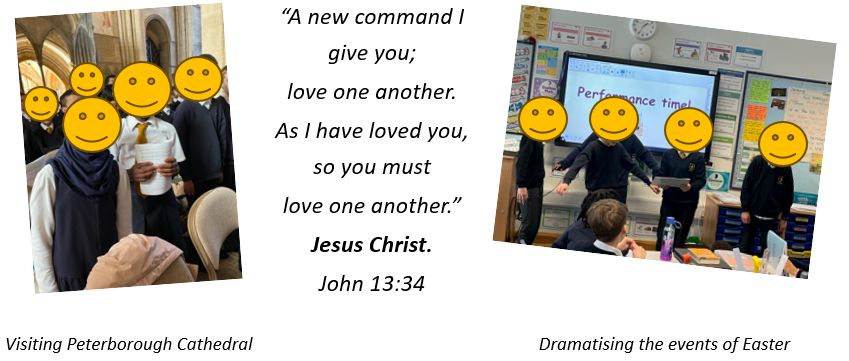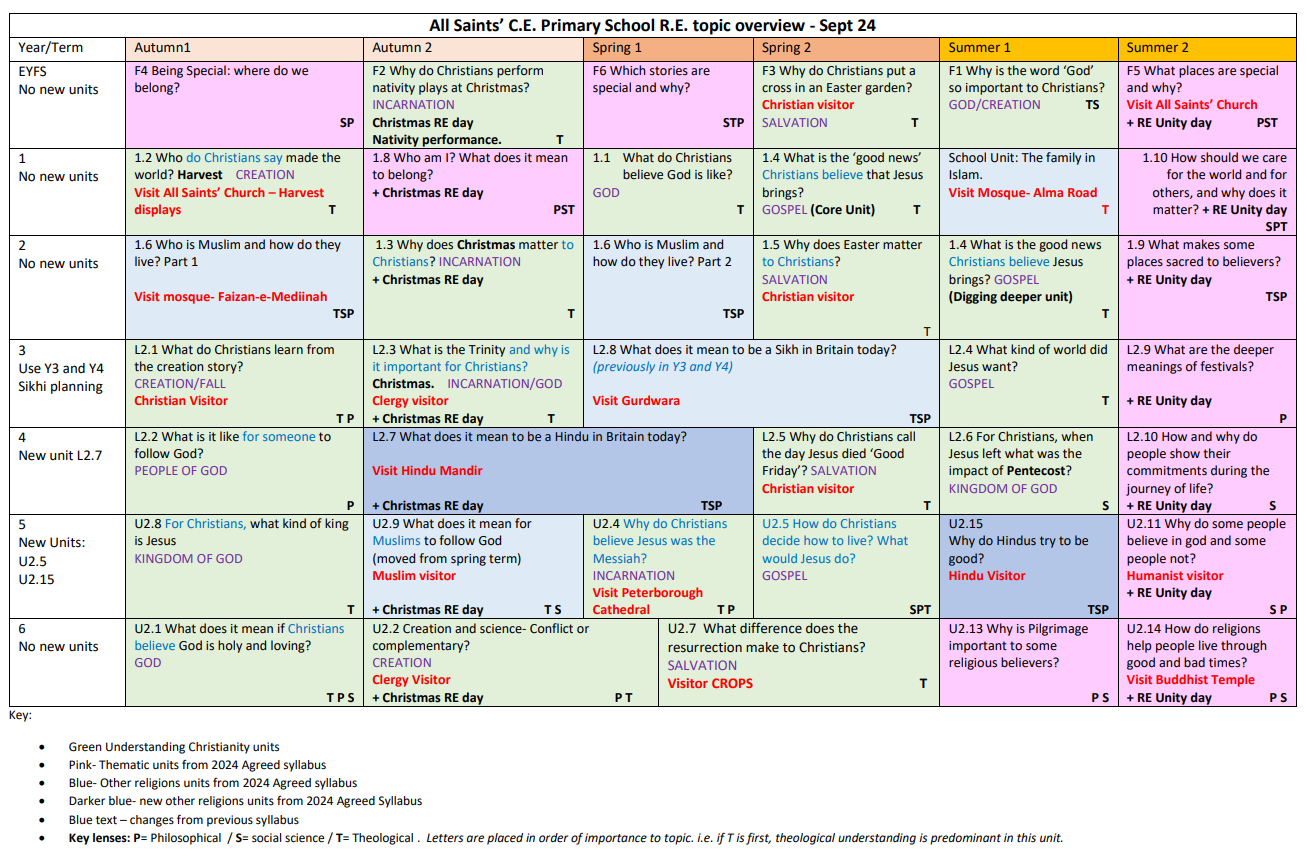RE

Intent
“Religious education in a Church school should enable every child to flourish and to live life in all its fullness. (Church of England Statement of Entitlement 2019). It will help educate for dignity and respect, encouraging all to live well together. The teaching of Religious Education is a legal requirement and is also a necessary part of a ‘broad and balanced curriculum.’
Through our Religious Education curriculum, we aim to:
- encourage all children to form good relationships and respect people of other faiths, or no faith.
- enable pupils to hold balanced and informed conversations about religion and belief.
- know about and understand Christianity as a diverse, global, living faith through the exploration of core beliefs, using an approach that critically engages with biblical text.
- gain knowledge and understanding of a range of religions and worldviews, appreciating diversity, continuity and change within the religions and worldviews studied.
- engage with challenging questions of meaning and purpose raised by human existence and experience.
- explore their own religious, spiritual and philosophical ways of living, believing and thinking.
As a Church of England School, RE is an important part of our core curriculum. We believe it is vitally important for our children to be aware of, and informed about, religions and beliefs in order to be better informed.
As the children progress through the school, we aim to build on the knowledge of the major world religions as well as non-religious beliefs, as set out in the Agreed Syllabus for RE by the Diocese of Peterborough. The children will develop a strong religious vocabulary and be able to confidently express themselves and investigate questions about faith.
Our Religious Education curriculum will be enhanced through links with the local faith community and All Saints' Parish Church.
Implementation
Our pupils engage in weekly RE lessons which meet the requirements of the agreed syllabus.
The curriculum mirrors the world we live in, covering Christianity and other main religions, as well as some non-religious world views.
As a core subject, teachers are committed to providing quality weekly lessons which can be accessed by all learners. Teachers plan from the Peterborough Diocese Agreed Syllabus for Religious Education (2019-2024) and the Understanding Christianity support materials. Across the school, Christianity will be studied in RE in each year group for at least 50% of RE curriculum time. In order to achieve a rich, deep knowledge and understanding of Christianity, the resource “Understanding Christianity” is used. Pupils will also study specific religions and thematic units, which make links to other faiths and non-religious world views.
All aspects of the agreed syllabus are taught, and dedicated lesson plans specific to RE are completed by the teacher. The core elements of a lesson are making sense of the beliefs or religious text, making connections and understanding the impact on peoples’ lives. Teachers assess pupils at the end of each unit of work, making judgements relating to key outcomes. Teachers assess whether a pupil is emerging, meeting expectations or exceeding the specific outcomes. These assessments are used to create an annual report to parents.
Impact
As a result of their ongoing religious education at All Saints’ Church of England Primary School, the expectation is that all pupils, from Early Years Foundation Stage onwards, become religiously literate and can:
- Give a theologically informed and thoughtful account of Christianity as a living and diverse faith.
- Show an informed and respectful attitude to all religions and non-religious world views in their search for God and meaning.
- Engage in meaningful and informed dialogue with those of other faiths or none, understanding that the views of others may be different to their own.
- Reflect critically and responsibly on their own spiritual, philosophical, and ethical thoughts.
Our last SIAMS inspection, in 2020, found that: ‘The quality of Religious Education (RE) is exemplary resulting in high quality, innovative teaching that leads to high attainment and progress across the school.’ The inspector noted that children’s ‘religious literacy and spiritual development are of a high quality’ and that ‘Teaching is delivered through a wide range of high quality, interactive activities encouraging pupils’ enjoyment of learning and promoting a deep engagement with the subject. Structured support for all pupils, including those with learning difficulties, enables all pupils flourish.’
Topics that are taught in RE for each year group.
